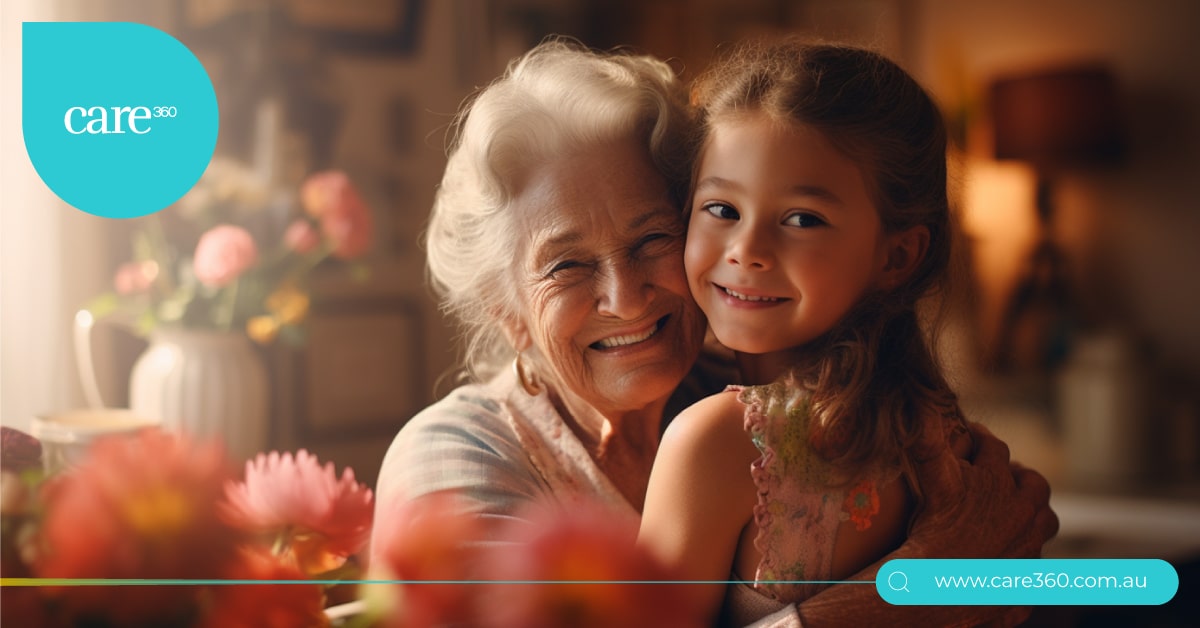
Being a caregiver of an aging family member is hard work, with every day presenting a new set of challenges, especially when supporting an aging family member. Caregiving is emotionally demanding and physically exhausting. Moments of sadness, frustration, anger, resentment and Managing the guilt are common daily emotions.
Here are a few examples of some of the common caregiver comments that we have heard at Care360.
“I lose sleep at night, wondering if they will keep themselves safe.”
“Their constant needs make it hard to make plans or have any time of my own.”
“I try so hard, but nothing pleases them. I wish they would stop complaining.”
“I barely have time to bathe or visit the bathroom without someone needing me.”
“I have no life, and I am sick of it.”
“How much longer can I continue to live this way?”
“My siblings don’t help out; it is all left on my shoulders.”
“I have heard horror stories about aged care and can’t do that to my loved one.”
“My loved ones have said they would rather die than go into aged care.”
“My loved one looked after me; it is my responsibility now to look after them.”
Having passing thoughts such as these is normal – especially when faced with fatigue, stress and being pulled in different directions. However, if you find yourself plagued by these thoughts often, you may be at risk of caregiver burnout, and it may be time for some help – in the form of respite care, in-home care or even full-time aged care.
But how do you manage the guilt of giving up the entire caregiving obligation and putting your loved one into aged care? Here are five tips from the Care360 team.
But I made a promise.
Many of us promised in good faith when our loved ones were younger and healthier that we would never put them into a nursing home and that it is our responsibility to care for them ourselves till the end. While that is admirable thinking, we find ourselves faced with the fact we still need to work full time, raise our own families and provide full-time, hands-on care. Often the solution is to have your family member move in with your family and to become the primary caregiver.
The reality is, experiencing caregiver burnout will not be best for you or your loved one. If you are suddenly struck down with an illness, your loved one will have no option but to be moved into a care facility with little notice, consultation and without you offering support. By controlling the process while you are healthy, you will be able to take your time to make the best decisions for you and them.
Be honest with yourself When Managing the guilt.
Are you taking on more and more responsibility because you are afraid of the guilt, the difficult conversations, the resentment from your loved one? Are you afraid the aged care home or nursing home won’t treat your loved one with the care and respect they deserve? Are you really able to deliver the quality of care needed to give your loved one the best opportunity to thrive?
What if you could find answers and solutions to these questions? Taking some time to mentally prepare yourself for the transition is as helpful to you as your loved one. Speak with friends and family, seek guidance from a psychologist or counsellor and gain support for your needs at this time.
Spend some time researching aged care homes until you are comfortable; you have found one that will be well-matched to the needs of your loved one, their levels of care and financial position.
Recognise that aged care homes have come a long way
We may still have visions of crowded, smelly nursing home wards that existed decades ago before regulations were put in place to protect residents and employees and competition in the sector emerged. In truth, many of these long-term facilities have come a long way since those days.
Many of the rooms are private suites, similar to large hotels with private rooms, bathrooms. Within their suites, residents can have their furniture, furnishings, belongings, and in some cases, pets. Many have private balconies, beautiful gardens and space for visitors along with shared recreation facilities.
Aged care homes have a lot to offer
Your loved one will be supported by an entire team, whether it be the specialist carers, cooks, cleaners, activity leaders. Many aged care facilities offer a choice of meals, on-site services such as hairdressers, beauty and podiatrists plus regular bus outings.
Facilities are purpose-built to help prevent falls and have tools to help with monitoring and safety. There is support for administering medication and carers to make sure your loved one is eating and sleeping well, so they remain in good health.
There is usually a wide range of activities for residents from music therapy, pet therapy, gardening, dancing, cards and games. Some aged care homes even have a daily happy hour – providing the opportunity for social interaction. You may find that your loved one has a more active social life than you!
Your relationship may improve.
Instead of being the unappreciated caregiver, often on the receiving end of complaints and a lack of appreciation, you can become a visitor who brings joy to their days and enhances their life in aged care. You can brighten their day with your presence, bring care packs, take them on outings and positively enjoy their company.
Care360 is Australia’s first independent aged care search service helping you find the right aged care home for your loved one. Care360 helps reduce the stress of finding aged care by putting all the information you need at your fingertips with their personalised Quality of Care Report.
Enter a few details, and we will provide a comprehensive, independent report showing the top aged care homes matched to your requirements. Find out more here.
For more information on Care360, please visit our website www.care360.com.au and to stay up-to-date with our latest news follow us on Facebook & Instagram






